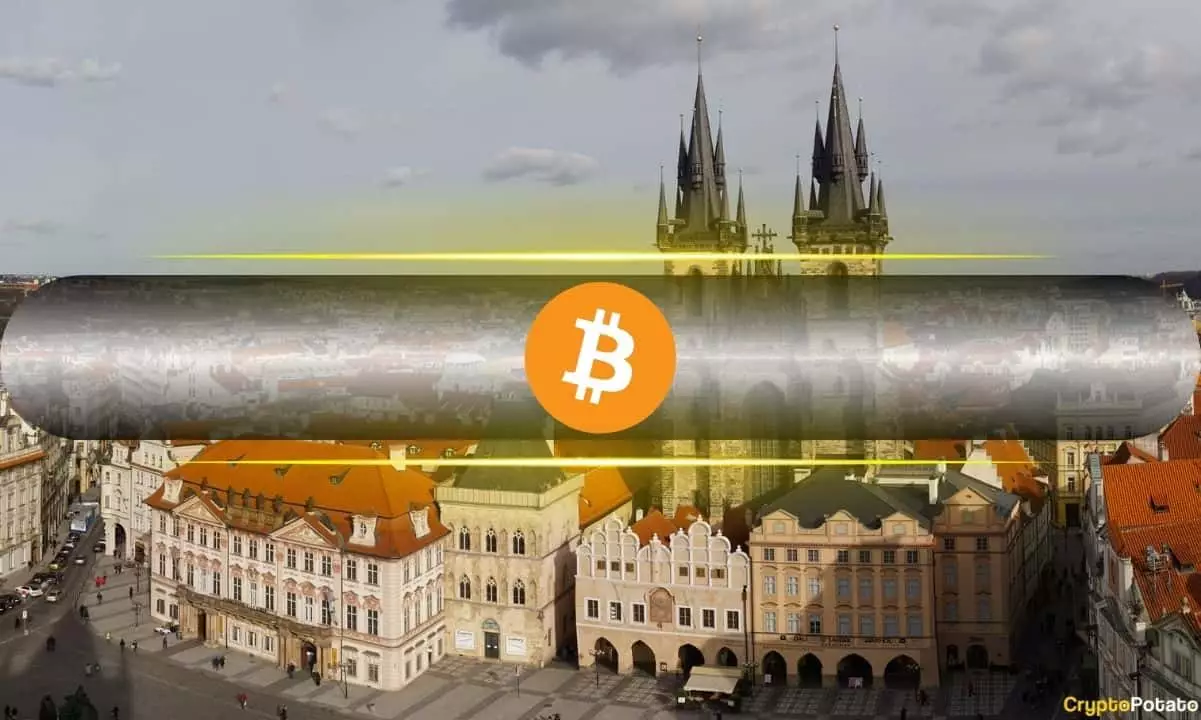In recent years, Bitcoin has transitioned from a niche digital currency to an increasingly discussed asset among governments and central banks. This shift speaks volumes about the changing landscape of finance, as nations begin to explore alternatives to traditional reserve assets. From the U.S. to Europe, the dialogue surrounding Bitcoin hints at its potential as a diversified component of national reserves.
One of the most notable recent developments has emerged from the Czech Republic, where Aleš Michl, the governor of the Czech National Bank (ČNB), has suggested Bitcoin as a viable option for diversifying the country’s foreign exchange reserves. While Michl’s comments indicate a notable opening toward cryptocurrency, he was careful to note that the acquisition of Bitcoin would be on a modest scale—describing it as “a few Bitcoin” rather than a substantial financial undertaking. Despite the proposed acquisition’s limited scope, the conversation itself signifies an evolving attitude within the government regarding the role of cryptocurrencies in economic strategy.
However, any potential investment would necessitate approval from the ČNB’s board. This cautious approach reflects the broader hesitance of traditional financial institutions to fully embrace cryptocurrencies, primarily due to regulatory and volatility concerns.
A crucial turning point in Bitcoin’s perception came during and after Donald Trump’s 2024 presidential campaign. Initially critical of cryptocurrencies, Trump has since pivoted to endorse Bitcoin as a strategic asset essential for stabilizing the U.S. economy. His proposal for the establishment of a U.S. Bitcoin reserve has garnered both support and skepticism. Proponents, like Senator Cynthia Lummis, argue that Bitcoin’s finite supply positions it as a potential safeguard against inflation and a declining dollar, making it an appealing option for national reserves.
Nonetheless, opposition from critics in Congress reveals the ongoing tension surrounding cryptocurrency’s integration into mainstream finance. The divergent viewpoints underline the complex balance between embracing innovation and addressing the regulatory challenges it poses.
The momentum for integrating Bitcoin into national reserves isn’t exclusive to the U.S. Switzerland is actively contemplating a ground-breaking move to position Bitcoin alongside gold in its reserves, elevating its reputation as an innovator in global finance. The potential for a national referendum could set a significant precedent, potentially allowing Switzerland to become the first country to officially recognize Bitcoin as a reserve asset.
Similarly, discussions in Germany have highlighted Bitcoin’s potential to reduce reliance on the U.S. dollar, particularly if adopted by the European Central Bank or the Bundesbank. Meanwhile, Hong Kong’s legislative push, spearheaded by Wu Jiezhuang for Bitcoin integration, reflects a global trend toward economic resilience through cryptocurrency adoption.
On the other side of the spectrum, Russia’s intentions are particularly focused on using Bitcoin to circumvent Western sanctions. Proposals for a strategic Bitcoin reserve, as suggested by Anton Tkachev in the Duma, emphasize how countries view cryptocurrencies not just as financial instruments but as strategic assets in the geopolitical landscape.
As governments globally increasingly consider Bitcoin within their financial frameworks, the discussions underscore a potential paradigm shift in how reserve assets are viewed. The transition from skepticism to acceptance signals a maturation in the perception of cryptocurrencies. Whether these trends will solidify into widespread adoption remains to be seen, but the conversation around Bitcoin’s role in national reserves is undeniably gaining momentum, marking a significant chapter in the evolution of finance.
















Leave a Reply